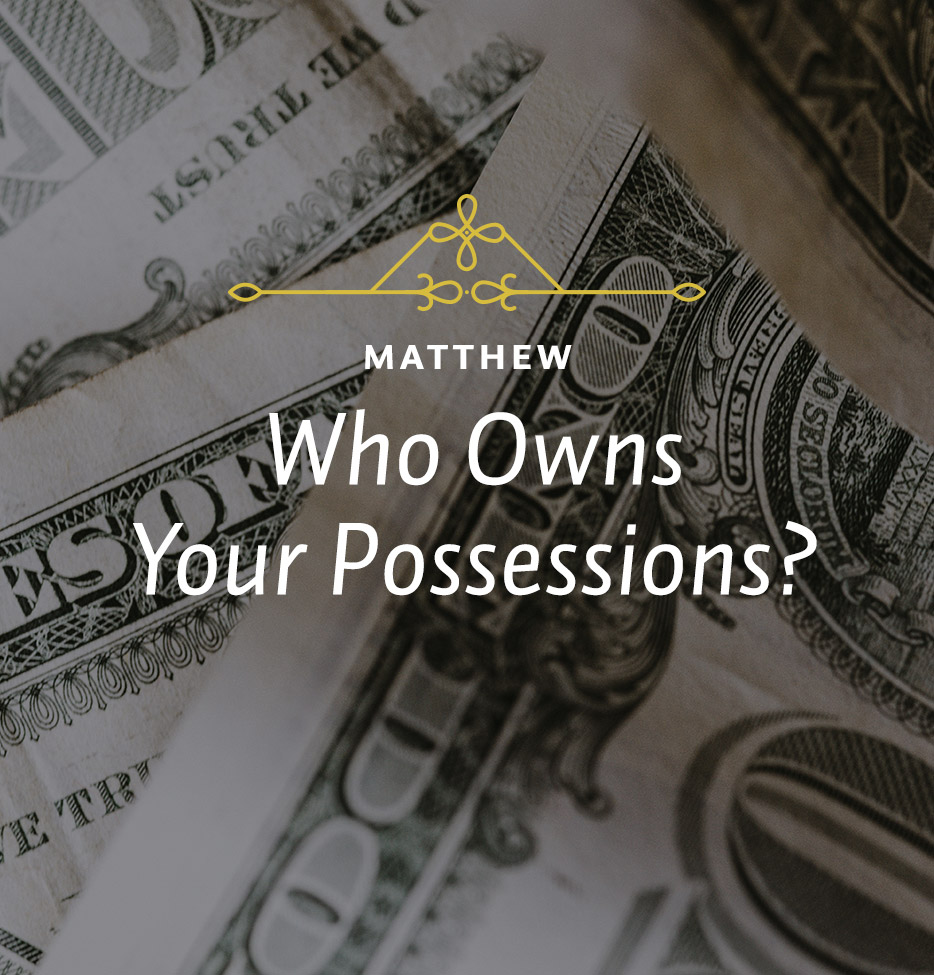Do not tell me that you cannot be generous this year because it is a bad year financially or because your stocks have declined. I once received a report of alumni giving to Harvard University for the fiscal year 1969-70. It was the second highest record of annual giving in the history of the university, and it occurred in a year in which the Dow Jones average dropped from a high near 1000 to below 700. No, liberality is not very closely linked to affluence, unless it is an inverse relationship. We all need to learn the secret of the Philippian Christians for whom “the abundance of their joy and their deep poverty abounded unto the riches of their liberality” (2 Cor. 8:2).
The final verse of our section deals with the mutually exclusive nature of serving God and riches. “No man can serve two masters: for either he will hate the one, and love the other; or else he will hold to the one, and despise the other. Ye cannot serve God and mammon.”
Nothing could be said more clearly, or be more obvious. And it should be a heart-searching question for us all. Could anything be more insulting to God, who has redeemed us from the slavery of sin in Christ and has given us all things richly to enjoy, than to take the name of our God upon us, to be called by His name, and then to demonstrate by every action and every decision of life that we actually serve money?
In the discussion of this verse that Dr. Martyn Lloyd-Jones provides in his study of the Sermon on the Mount, there is a story on this theme that he maintains is plainly and literally true. There was a farmer who one day went into the house to his family to report with great joy that his best cow had given birth to twin calves, one red and one white. He said, “You know, I have been led of the Lord to dedicate one of the calves to Him. We will raise them together. Then when the time comes to sell them, we will keep the proceeds that come from one calf and we will give the proceeds that come from the other to the Lord’s work.”
His wife asked which calf he was going to dedicate to the Lord, but he answered that there was no need to decide that then. “We will treat them both in the same way,” he said, “and when the time comes we will sell them, as I have said.”
Several months later the man entered the kitchen of the home where his wife was working, looking very sad and miserable. When his wife asked what was troubling him, he said, “I have bad news for you. The Lord’s calf is dead.”
“But,” his wife remonstrated, “you had not yet decided which was to be the Lord’s calf.”
“Oh yes,” he said. “I had always determined that it was to be the white one, and it is the white calf that has died.”
It is always the Lord’s calf that dies—unless we are absolutely clear about our service to Him and about the true nature of our possessions. Who owns your possessions? The Lord Jesus Christ tells us that either God owns them and you serve Him, or else your possessions own you, and you serve them. In any case, you never really possess them yourself. May God give us each the victory that comes when our gifts, wealth, time, friends, ambitions, and talents are turned over to Him and we use them to establish indestructible treasure in heaven.






